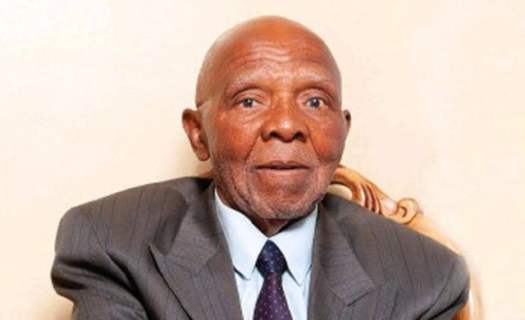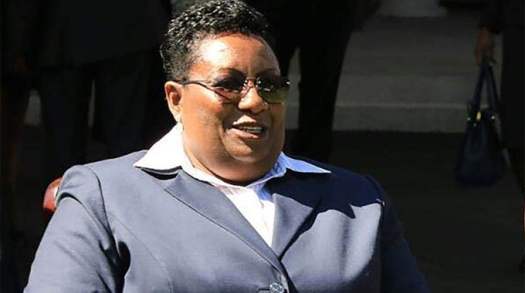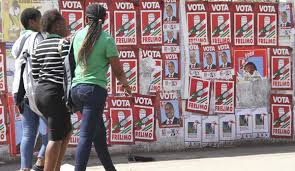Appearances can deceive big-time.
Perusing the South African media before that country’s general elections in May this year, one would have concluded that the ruling ANC was finished and would face annihilation and pulverisation at the polls. But, alas, no such funeral rites were administered as the ANC won again, albeit with a slightly reduced majority.
Although not on a similar scale, the outcome of two by-elections held in Zimbabwe last week was similarly instructive after the pulverisation of the ruling
Zanu PF forecast by some sections of the media did not happen, but, in fact, the complete opposite emerged.
Before the by-elections, MDC secretary for elections Jacob Mafume was cocksure that the polls would be a walkover for his party; that they were merely going
through the motions because victory was certain.
Mafume, in his typical boastful manner, blurted: “It is now clear to all and sundry that Zanu PF has failed. They no longer allow those in rural areas to sell their maize. There are no jobs. There is no education, and there is no electricity. There is also no good
healthcare. With all this, no person in their right mind can vote for Zanu PF.”
But independent opposition politician Margaret Dongo might have identified one of the factors as to why the MDC got it so monumentally wrong, pointing out how
the main opposition party’s allies in the non-governmental organisation (NGO) sector, who have been tacitly doing the political groundwork for the MDC, are now
a force on their own, with competing and rival interests even against the MDC itself.
In an interview conducted by celebrated author, archivist and documentary film-maker Joyce Jenje-Makwenda, published this week, Dongo observed that NGOs had become a self-perpetuating lucrative business; that they now exist for their own sake.More in Home
Dongo said: “You will find that they (NGOs) have money for salaries, travel allowances and posh cars, but they do not have money for projects or to
finish projects despite the fact that the donor has spent millions on women empowerment in every aspect, be it political, maternal health or domestic violence.
They (donors) do not evaluate on the ground to see if they are making any progress. There is a syndicate or a cartel which speaks donor language, and these are
used to write reports. The donors just evaluate the written reports.” Precisely.
As one can see, it’s not a coincidence that these NGOs are double-dipping and carefully navigating between donors and the MDC to maximise from both. To keep
donor funding flowing in, they have to point out that they are filling the gap caused by failings of the government.
But the paradox of it all is that it’s not in their greedy interest for the opposition to replace the government. Victory for the opposition is an existential threat to them; it is a threat to their very existence. The day the government fully delivers, these NGOs are out of a job.
That is why after decades with NGOs on the ground, poverty still rules in rural areas.
The complete eradication of poverty in rural areas, which the MDC has been promising to do, is an existential threat to NGOs.
It is the same operative manipulative logic and business model, so to speak, used by global pharmaceutical cartels to corner the market for some medicines.
For instance, cheaply available insulin, used in the treatment of diabetes, is a big threat to pharmaceutical firms’ profits to the extent that these pharmaceuticals ignore their responsibility to humanity at large in order to make money for their shareholders.
That is why more than a century after its discovery, insulin is still expensive despite the fact that its price should have gone down because
it’s inexpensively made and hundreds of millions use it. Likewise, NGOs have taken the space in rural areas, but want to keep on monopolising it because there
is a lot of money to be made.
Not to mention that the intensity and virulence of attacks on the ruling party by the largely anti-Zanu PF private media has, in the long run, had the
unintended opposite and positive effect of keeping Zanu PF on its toes to quickly rectify whenever it is exposed as falling short. Indeed, the private media
has served as the best adviser to Zanu PF while making the opposition fall into complacency by not similarly admonishing it as and when necessary.
The by-election results also show the folly of linear thinking in politics. People vote for many and varied reasons. Americans who considered themselves to be
non-racist voted for Donald Trump, who has made racist statements, in the 2016 presidential election.
And loyalty does not just evaporate like dew with sunrise. We saw it in South Africa where voters largely stuck by the ruling ANC in the general election held
this year.
Interviewed shortly before the elections, some residents in Marikana in South Africa’s North West province indicated that they would vote for the ANC despite some leaders being “corrupt”.
One of them, Mzwandile Ngqothwana, said although the party had been embroiled in corruption allegations, he would still vote for it. He said: “I am ready to vote for the ANC, although it is a corrupt party. I am ready to give them my vote again.
I am still going to vote for the same government because some of us are employed because of this government… Better the devil you know than the one you don’t know. They are corrupt, but what can we say?”
That’s realism, if you ask me. Tangibles have been delivered to rural folk in Zimbabwe — not that the arrest of MDC MP Job Sikhala had a knock-on effect on the rural voters, resulting in the Bikita loss, as lamely claimed by Masvingo provincial chairperson James Gumbi. We are talking of real sustained deliverables, not the token, piecemeal contributions by corrupt NGOs to keep donor funds rolling in at the expense of the suffering people.
Just like Ngqothwana, Peter Mathonzi said he would vote for the ANC because of its history. Mathonzi joined the ANC in 1994.
“I am a member of the ANC; I am very active,” he said. “I vote for the ANC, no matter what. The leaders are the ones who disappoint us, but I won’t abandon my organisation just because of certain leaders ruining it. The ANC has not failed me; only certain groups within the party have failed me.”
It’s not me who said it, but that is how people, whose collective vote decides election results, see it. And it’s their democratic right to see things the way they want — which is exactly what happened in the just-ended by-elections.
So, Mafume is the one who is completely lost to say “no person in their right mind can vote for Zanu PF”.
That misguided utterance alone, which rubs voters the wrong way – not rigging or corruption — is why the MDC loses to Zanu PF much of the time.
































































































































